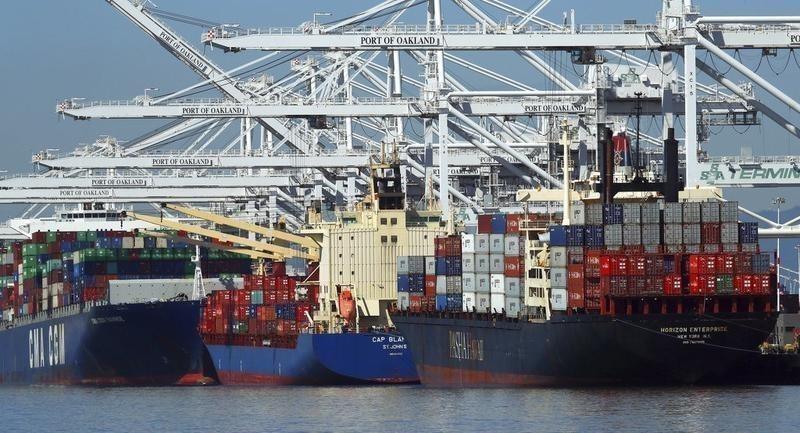 Container ships wait to be unloaded at the Port of Oakland on March 7, 2018, in Oakland, California. (BEN MARGOT / AP)
Container ships wait to be unloaded at the Port of Oakland on March 7, 2018, in Oakland, California. (BEN MARGOT / AP)
The US economy faces "significant uncertainty" in the pace and evenness of the rebound as it recovers from the novel coronavirus shutdown, Federal Reserve Chairman Jerome Powell said on Tuesday.
The possibility of long-term damage from higher rates of unemployment and an increasing number of small business failures cloud the recovery
Jerome Powell, Federal Reserve Chairman
The possibility of long-term damage from higher rates of unemployment and an increasing number of small business failures cloud the recovery, he said in prepared remarks to the Senate Banking Committee.
"The levels of output and employment remain far below their pre-pandemic levels, and significant uncertainty remains about the timing and strength of the recovery," Powell said.
"Much of that economic uncertainty comes from uncertainty about the path of the disease and the effects of measures to contain it. Until the public is confident that the disease is contained, a full recovery is unlikely."
The US fell into recession in February, a month before the World Health Organization said COVID-19 was a pandemic, the National Bureau of Economic Research reported.
Sharp job losses occurred in March and April as the retail, restaurant, leisure and travel sectors shut down. But hiring increased in May as retail sales and mortgage applications bounced back.
On Tuesday, the US Commerce Department said retail sales grew at a record 17.7 percent pace in May. That's the largest monthly increase since record-keeping began in 1992.
ALSO READ: Is US facing recession? Real economy to decide
And while the number is an encouraging sign of a turnaround following the government-ordered shutdown intended to curb the spread of the coronavirus, it follows a 14.7 percent drop in April, and retail sales still remain below pre-pandemic levels.
Meanwhile, Wall Street rallied for the third-straight day on the retail sales data, boosting confidence in a swifter economic recovery, and on a drug trial by scientists at Oxford University that showed "breakthrough" results for COVID-19 treatment.
Acute risks to small firms
Powell noted strong economic indicators but said small business remains a concern. "The pandemic is presenting acute risks to small businesses," he said.
"If a small or medium-sized business becomes insolvent because the economy recovered too slowly, we lose more than just that business. These businesses are the heart of our economy and often embody the work of generations."
Earlier this week, the Federal Reserve officially launched its Main Street Lending Program intended to help smaller firms cope with the downturn.
Powell said that people at the lower end of the economic scale have been hit hardest in the downturn. And he said the Fed, unlike Congress, lacks the ability to make direct cash payments to those hit hardest.
"Low-income households have experienced, by far, the sharpest drop in employment, while job losses of African Americans, Hispanics and women have been greater than that of other groups," he testified. "If not contained and reversed, the downturn could further widen gaps in economic well-being that the long-term expansion had made some progress in closing."
READ MORE: US Fed: Persistent trade tensions weigh on US economy
Deadlines approach on how to best deliver temporary relief for businesses and unemployed workers following nearly $3 trillion in emergency spending intended to spur the economy.
"The longer the downturn lasts, the greater the potential for longer-term damage from permanent job loss and business closures," Powell said.


